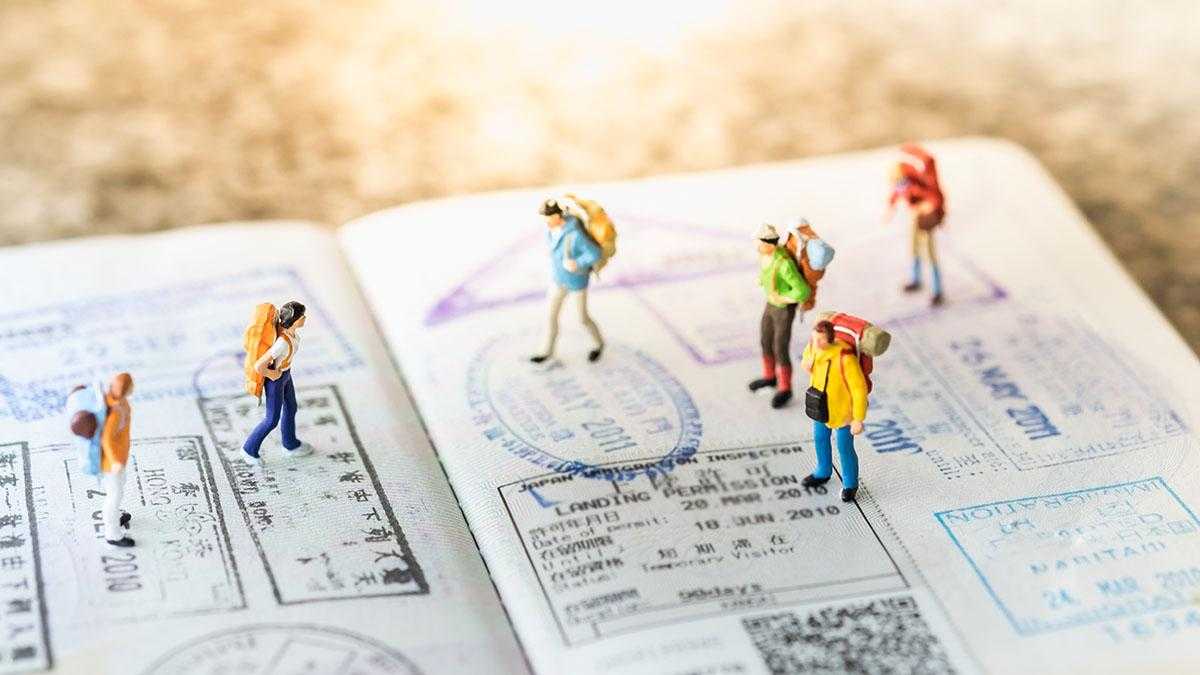When relocating managing your expat money transfer will be at the bottom of a very long list of admin tasks you need to do when moving overseas. It can be crucial to keep ahead of the cost that your relocation will entail, especially if you are working in a country have elected to stay in.

However, before you begin to make your initial transfers you will need to complete some bureaucratic and logistical tasks before your international transfer can be made.
Complete a walkthrough of your new town a city
Whilst many will consider moving overseas a brave step without prior knowledge of the area it can be a recipe for disaster. It’s always worth spending a week or two at least in the proposed location to ensure you and your new potential home are compatible.
It will also provide you with a flavour of how far your salary will go and ensure the cost of living isn’t above your means. It will also allow you to get in touch with local expats and hear both the positives and negatives of the local lifestyle. Numerous online groups such as Meetup will help guide you through the pros and cons of a potential move.
If your company aren’t providing a rental property or international school, it will also allow you to do some worthwhile research and select a suitable property and schooling for any children joining you overseas.
Obtaining the appropriate visas
The vast majority of countries will require you and your family to apply for visas. It is often a time-consuming process which can be complicated with trips to embassies being frequent. The process can be simplified if you are relocating to work for an established company that has a presence in the country; typically, they will have already acquired experience of the process and will almost certainly be able to assist or advise.
In many cases you will need sponsorship in the new country which is typically provided by the company you work or will for; put simply, the larger the company and its resources in the country the easier this process should be.
Specialist skillsets are often looked on favourably so this can be a huge plus when looking to relocate to a country that is needing certain skillsets and expats with the right CV’s are welcomed.
If you aren’t travelling alone your family will need to be included in your visa application process. Every country has a different criterion and many expat visa applications will not allow spouses to work. If your spouse needs to work it is worth taking advice from your company or visa agent to ensure your partner has the ability to work once you arrive.
Your child’s schooling
If you work for a multinational or sizable company, they will almost certainly have ties with a local international school, especially if schooling is part of a pre-agreed relocation package. Regardless your future colleagues will almost certainly be able to provide some insight into reputable place to school your children.
If however, this route isn’t fruitful the pre-discussed Meet up or expat social groups members will almost certainly be able to advise, especially if in a significantly sized city.
Shipping your belongings overseas
Once many of the formalities of your move have been arranged and you know when you will live and where your children will be schooled you will need to send their and your own belongings. Sourcing a suitable shipping or removal company will be key in ensuring that your property arrives in a timely and intact fashion.
Companies such as Santa FE offer near-global coverage and facilitate thousands of expat relocation a year. Clients benefit from 47 global offices making the return trip just as easy, they have been facilitating expat relocations for over 120 years.
If required, they also offer storage facilities as well as a visa service for those who haven’t the time to arrange themselves.
Setting up an overseas bank account
Before you are looking at either transferring your money as an expat or arranging your salary transfer it’s advisable to open a bank account to suitable your requirements. Many tier 1 institution offer an expat focus product allowing clients to manage their funds online. Whilst the bank will also allow you to make free or competitively priced transfers a Currencies Direct will have a much more proactive approach to your transfers and be much more keenly priced saving money and time on your international payments.
Transferring money internationally as an expat
Once your expat bank account is set up you will transfer money to and from your account. This may relate to your initial installation cost, property rental or salary transfers. Getting an account set up is typically fuss-free and once you made your initial enquiry the money transfer company will advise on any required documentation. Your account will typically be activated in a few hours and you can make your first transfer the same day.
Your international money transfer provider account can be used to receive your monthly salary, make rent payments or facilitate larger transfer overseas. Providers such as Currencies Direct work with wallet technology, allowing you to hold both your base currency and foreign currency online and transfer money at your convenience.
If you also have a regular UK income you can also arrange direct debit to be transferred regularly at your convenience.
Expat money transfer services – Banks
Global banks such as HSBC and Barclays will provide expat banking services, allowing expat clients to posses’ bank accounts for different currencies and facilitate money transfers between these accounts. Expats facilitating money transfers via global banks will incur fees to transfer money and potentially receive money. Their rate & applied margin will typically dependant on your relationship with the bank, the department you deal with and the amounts of wealth they manage for you.
The benefits of using your global bank will be convenience and arguably the familiarity of their service. Rates can be uncompetitive, fees excessive especially when dealing with exotic currencies. The time taken to transfer funds can also be longer than that of an application or foreign exchange broker.
Expat money transfer – foreign exchange brokers
Foreign exchange broker has a strong familiarity with expat money transfer and requirements. Their services are offered on several expat life websites and they can assist with relocation money transfers, ongoing salary or rent payments and currency repatriation transfer when your overseas work contract ends, and you return home.
Clients that opt to use Foreign exchange brokers can enjoy superior exchange rates, no transfer fees and excellent levels or market guidance on currency trends.
Regular expat money transfers – foreign exchange brokers
For those who are paid in a foreign currency or locally and need to sustain a foreign mortgage or expenses, a regular money transfer scheme can work well. Regular money transfer plans can allow you to fix an amount in your base currency, foreign currency or both. Meaning you can know the rate your money is transferred for up to a year and not be financially impacted by a weakening currency pair.
Expat money transfer – Online apps
The evolution of the fintech (financial technology) sector has seen a handful of apps evolve to service the money transfer sector. These apps are a highly efficient way of transferring expats money internationally. The rates are competitive, and fees reduced, in some cases international banks won’t allow beneficiary accounts to receive payments from these apps for always verify with your bank.
Essentially these applications are online only which means very little customer service is available. Any queries will have to be initiated via email or online chat and locating stray funds can take longer than banks and Foreign exchange brokers.
Knowing the money transfer rates, transfer fees and FX margins
When gauging value on your money transfer always ensure you are aware of where the interbank rate is. The rate between the interbank and your trading rate should be between 0.4 to 3% subject to the amount you are transferring.
Banks will typically charge a margin and a transfer fee to make a money transfer on their client’s behalf.
An application will typically charge a fee which could represent a portion of the amount transferred. You will then have a few working days to transfer the base currency to your online application.
Foreign exchange brokers will not charge a fee but will apply a margin to the transfer. You will have 3 working days to transfer the funds and be liable for the transfer. The higher the amount transferred the smaller the margin applied. Reception fees for transferring money will also normally be absorbed by the foreign exchanger broker, meaning you receive complete transparency.
